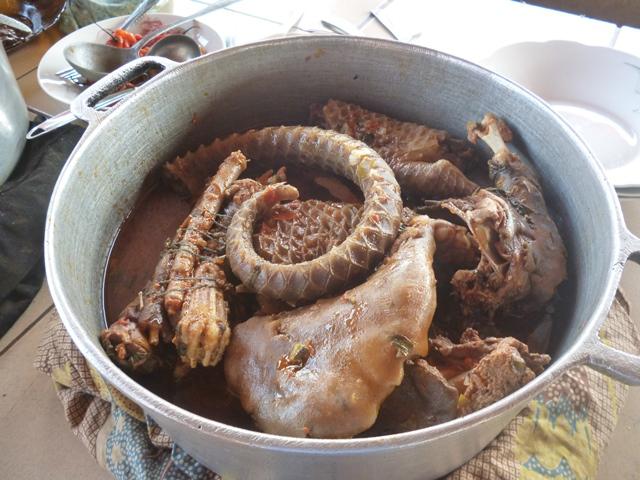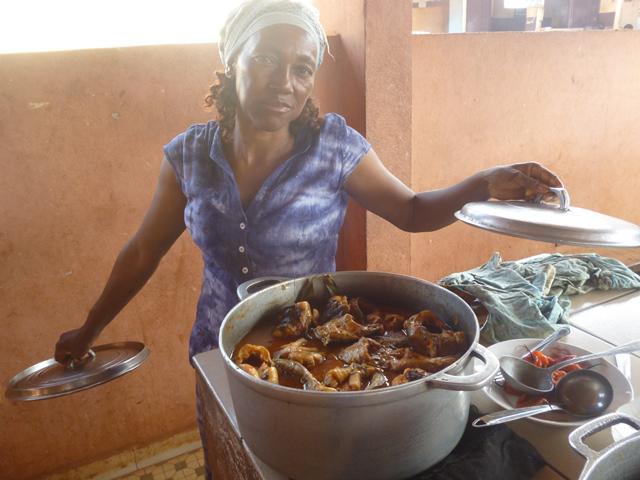Ndameu Benoit
This project aims at: Mobilize local actors for sustainable management of wildlife; create awareness on role and responsibility of these local actors on wildlife resources degradation especially an others health hazards they are exposed to; set up a framework for local hunters to assert their concerns toward the present regulatory framework and help them organise in view to contribute to the reform of the wildlife law in Cameroon.

Pangolin meat in stew available in the eating area at the Ayos bus station.
As a transit city between the nation’s capital, Yaoundé and four other administrative regions of the country (Central, Eastern, Adamawa, North and Far North, the project city location Ayos also serves as the transit place three neighbouring countries: Chad, Central African Republic and the Republic of Congo.

Bushmeat seller showing the menu.
The project area is well known to be a locality of highly marketing and increased consumption of bushmeat: many travellers always stop in this locality to consume bushmeat. The consequences of this situation are: dense traffic of wildlife products which provide direct revenues to local hunters and retailers. Incidentally this causes great pressure on forest and wildlife potential in Ayos and neighbouring villages. Activities like hunting, species caught, handling dead animals ... are realized without respect of wildlife regulation, which itself, is increasingly irrelevant, according to key stakeholders that are hunters. Presently, this group of actors hardly recognize themselves in Cameroon’s wildlife regulation. They are more and more victims of the negative impacts of high pressure on wildlife.
The project outcomes are as follow:
1. The project will create among the key local hunters and other stakeholders, changes and modifications on the following indicators:
1-1- reduction of the high demand of wildlife products in the transit town of Ayos and illegal and harmful traditional hunting practices in order to induce the reduction of the pressure on wildlife resources in the supply areas that are the surrounding villages of this town;
1-2- adoption by retailers of more sanitary measures in handling fauna products and therefore reducing the risk of contamination by zoonoses casual or permanent consumers;
1-3- dropping of unsustainable traditional hunting practices to a more rational and effective techniques;
1-4- Meeting and formal dialogue between: traditional hunters, wildlife products retailers and the Administration representatives to develop strategies for effective traditional hunting and trading of wildlife products out of its clandestine nature;
2- The project will also create a formal and permanent platform between traditional hunters and other local actors of the wildlife sector in order to help identify and address critical issues in the current wildlife law and formulate concrete proposals and steps to improve this law;
3- An advocacy and lobbying campaign will be initiated by local actors of traditional hunting and retailers of wildlife products to obtain more consideration of their concerns and thoughts by the lawmakers to improve the current regulatory framework of the wildlife sector.
The project activities are planned for 12 months.